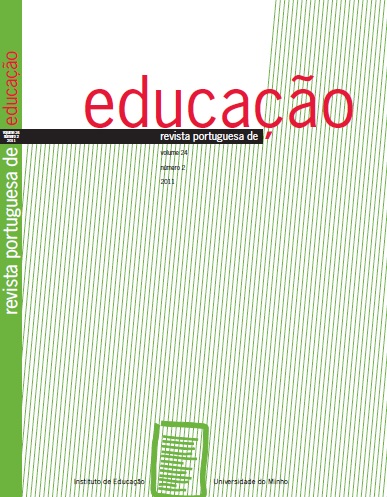PROLEGOMENA ON THE PROCESS OF CAPITALIST TRANSFORMATION OF EDUCATIONAL ACTIVITY AT THE ELEMENTARY AND SECONDARY SCHOOLING
DOI:
https://doi.org/10.21814/rpe.3027Abstract
This paper aims to expose the foundations of a suggested new field on educational research, whose object is the capitalist transformation (or capitalization) of the educational activity in the elementary and secondary levels, which is considered as the present dominant trend in educational policies all over the world. It is argued that such an educational change configures a classic process of capitalist transition whose nodal point is the
transformation of school work. Under the slogan of "continuous improvement" of school results, it is intended to constitute the productivity of students work as the measure of the productivity of the teacher's work. In this context, a detailed study of the forms of capital valorization in the education industry is required. Occurring mainly within the public education systems, the current
educational transformation involves deep changes both in state structures and in the relationships of educational production. The concepts of capitalizer state and for-capitalist forms of market are used to analyze these changes.
Keywords
Capitalization of education systems; School work; Capitalizer state
Downloads
Downloads
How to Cite
Issue
Section
License
1. The authors preserve their authorship and grant the Portuguese Journal of Education the right to the first publication. The work is licensed under Creative Commons Attribution License that allows sharing the work with the acknowledgment of initial authorship and publication in this Journal.
2. The authors have the right to take additional contracts separately, for non-exclusive distribution of the published version of their work (e.g. to deposit in an institutional repository or as a book chapter), acknowledging the initial authorship and publication in this Journal.
3. The authors have the permission and are stimulated to post their work online (e.g. in an institutional repository or on their personal website). They can do this at any phase of the editorial process, as it may generate productive changes, as well as increase impact and article citation (see The Open Citation Project).
The work is licensed under Attribution-ShareAlike 4.0 International (CC BY-SA 4.0)




















